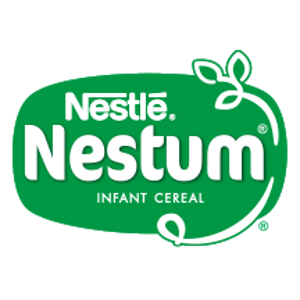
Pregnancy Cravings 101: Everything you Need to Know
Learn all about pregnancy cravings, from common causes to effective management tips and recognizing warning signs, for a healthier pregnancy experience.
As an expectant mother, you might yearn for unusual food combinations or have an insatiable desire for certain treats. These pregnancy cravings are a common and perfectly normal part the process, affecting many women at various stages of their journey to motherhood.
While the exact cause of these cravings is still a research subject, several factors are believed to play a role. Hormonal changes, nutritional deficiencies, and the body’s increased need for specific nutrients are all potential contributors.
It's important to approach pregnancy cravings with a balanced perspective. While indulging in your cravings can be a delightful part of your pregnancy experience, maintaining a healthy and varied diet is crucial for your well-being and for your baby.
In Baby&Me, we will explore the most common pregnancy cravings, their possible causes, and tips on how to manage them healthily. Whether you're craving pickles and ice cream or an unusual snack, understanding your cravings can help you enjoy your pregnancy more fully.
What We Know About Pregnancy Cravings
Pregnancy cravings are a well-documented phenomenon that many expectant mothers experience. These cravings can begin as early as the first trimester and often intensify as the pregnancy progresses. While the exact causes of pregnancy cravings remain somewhat mysterious, several key factors provide insight into why they occur.
One of the most significant contributors to pregnancy cravings is the dramatic shift in hormones that occurs during pregnancy. Increased levels of hormones such as estrogen and progesterone can influence taste and smell, making certain foods more appealing and others less so.
Also, pregnancy significantly increases the body’s nutritional demands. Cravings can sometimes be the body's way of signaling a need for specific nutrients. For example, a craving for red meat might indicate a need for more protein or iron, both of which are crucial during pregnancy.
Emotional and psychological changes during pregnancy can also play a role. Cravings can sometimes be linked to comfort foods or foods associated with positive memories and well-being.
However, while indulging in cravings can be one of the enjoyable aspects of pregnancy, it’s important to balance them with a nutritious diet.
How to Manage Pregnancy Cravings
Managing pregnancy cravings effectively is key to maintaining a healthy diet and ensuring your and your baby's well-being. Here are some practical tips to help you navigate these often intense and unexpected urges:
Balanced Nutrition
Ensure your diet is rich in essential nutrients by incorporating a variety of fruits, vegetables, whole grains, lean proteins, and dairy. A well-rounded diet can help reduce the intensity and frequency of cravings by meeting your body's nutritional needs.
Mindful Indulgence
It’s perfectly okay to indulge in your cravings occasionally, but moderation is important. If you’re craving something sweet or salty, try to find a healthier version of your desired treat. For example, opt for a fruit smoothie instead of ice cream or baked sweet potato fries instead of regular fries.
Regular Meals
Eating small, frequent meals throughout the day can help keep your blood sugar levels stable and prevent extreme hunger that can trigger stronger cravings. Aim to eat something every 2-3 hours.
Stay Hydrated
Sometimes what feels like a food craving can be a sign of dehydration. Make sure you’re drinking plenty of water throughout the day.
Address Nutrient Deficiencies
If you notice a pattern in your cravings, they might be linked to a specific nutrient deficiency. Consult your healthcare provider to check if you need supplements or dietary adjustments.
Support System
Share your cravings and dietary goals with your partner, family, or friends. A support system can help you stay on track and provide encouragement when needed.
By adopting these strategies, you can enjoy your pregnancy cravings in a way that supports your health and nurtures your baby’s development. Remember, every pregnancy is unique, so listen to your body and consult with your healthcare provider for personalized advice.

When Cravings Are Warning Signs
While most pregnancy cravings are harmless and even enjoyable, there are instances when they might indicate underlying issues that need attention. Here’s what to watch out for:
Pica
This a condition characterized by cravings for non-food items such as clay, dirt, chalk, or laundry starch. These cravings can indicate nutritional deficiencies, particularly iron or zinc.
Consuming non-food items can be harmful to both you and your baby, so it's crucial to seek medical advice if you experience these types of cravings.
Excessive Cravings
If you constantly crave unhealthy foods high in sugar, fat, or salt, it might be a sign of nutritional imbalance.
Excessive consumption of these foods can lead to gestational diabetes, excessive weight gain, and other health issues. Balancing your diet and addressing any underlying nutritional needs can help manage these cravings.
Persistent Specific Cravings
While occasional cravings are normal, consistently craving a specific food might signal a nutritional deficiency.
For example, a persistent craving for ice could indicate iron deficiency anemia. If you notice a recurring craving for a particular item, discuss it with your healthcare provider.
Emotional Cravings
Sometimes, cravings can be linked to emotional needs rather than physical ones. If you notice that you crave comfort foods during times of stress, anxiety, or sadness, it could be a sign that you need to address your emotional well-being.
Seeking support from a counselor, joining a support group, or practicing stress-relief techniques can be beneficial.
Cravings Impacting Daily Life
If your cravings are so intense that they interfere with your daily activities, sleep, or overall quality of life, it’s important to speak with your healthcare provider. They can help identify any underlying issues and provide strategies to manage these cravings effectively.
Understanding when cravings are a signal for concern can help you take proactive steps to ensure a healthy pregnancy.
Always listen to your body and communicate any unusual or intense cravings with your healthcare provider to receive the appropriate guidance and support.
If you want to learn more about everything that happens during pregnancy, read more from our blog.

Gain a better understanding of your child's development with the help of our stages
































